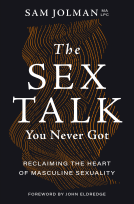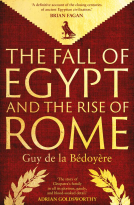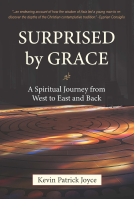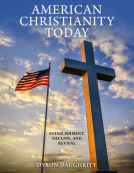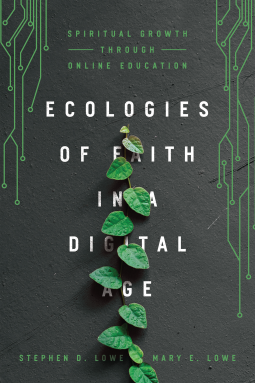
Ecologies of Faith in a Digital Age
Spiritual Growth Through Online Education
by Stephen D. Lowe; Mary E. Lowe
This title was previously available on NetGalley and is now archived.
Send NetGalley books directly to your Kindle or Kindle app
1
To read on a Kindle or Kindle app, please add kindle@netgalley.com as an approved email address to receive files in your Amazon account. Click here for step-by-step instructions.
2
Also find your Kindle email address within your Amazon account, and enter it here.
Pub Date Jun 19 2018 | Archive Date Jun 06 2018
InterVarsity Press | IVP Academic
Talking about this book? Use #EcologiesOfFaithInAdigitalAge #NetGalley. More hashtag tips!
Description
Technological innovation has changed nearly everything about human life, including how we teach and learn.Many Christian professors and institutions have embraced new technologies, especially online education. But as followers of Jesus Christ, we face the same call to grow in our faith. So how should we think about and approach Christian education in light of new technologies? Is it possible for us to grow spiritually through our digital communities?Steve Lowe and Mary Lowe, longtime proponents of online education, trace the motif of spiritual growth through Scripture and consider how students and professors alike might foster digital ecologies in which spiritual growth—even transformation—can take place.IVP Instructor Resources available.
Advance Praise
"Can spiritual formation take place through disembodied online education? Ecologies of Faith answers this question by developing a biblically informed approach to interconnectivity of human relationships that foster spiritual formation. Building on research in the social sciences, the authors illustrate that digital communities can provide an ecology of spiritual connection and growth. This book is must-read for educators and administrators who are concerned about Christian formation in a digital age."
-Mark A. Maddix, dean of the School of Theology and Christian Ministry, Point Loma Nazarene University, San Diego
"When I began teaching seminary in 1996, we offered no online courses or programs; today nearly half of our student course load is online. Ecologies of Faith in a Digital Age provides a much-needed theological framework for those of us trying to understand spirituality in our 'brave new digital world.' I have known Steve and Mary Lowe for about twenty-five years and have watched their thinking blossom and reach maturity; I look forward to learning much from them about the ecology of spiritual formation!"
-R. J. Gore Jr., professor of Systematic Theology and Ministry, dean of Erskine Theological Seminary
"Online and other forms of distance education are growing rapidly in Christian higher education and leaders and teachers in these settings rightly wonder about the opportunities or loss of opportunities for spiritual formation in these formats. Stephen and Mary Lowe provide us with a thoughtful and challenging 'ecological' model of spiritual growth to consider, exploring its presence in Scripture and potential benefit for thinking about and carrying out online teaching in ways that can promote reciprocal spiritual growth as we are mutually connected with Christ. This book is helping me think in new ways about how we can grow together spiritually, even when we are apart, and it has potential benefit for both Christian higher education and mission and local ministry settings. If you are involved in online teaching or ministry, it's a must-read."
-Kevin E. Lawson, professor of educational studies, editor of the Christian Education Journal, Talbot School of Theology, Biola University
"Mary Lowe and Stephen Lowe have long been trailblazers in the work of online theological education. In this volume they bring together their passion for spiritual formation, faithful pedagogy, and online learning. Those who doubt if these things can be brought together will find a well-informed, illuminating, and creative apologetic for faith formation in a digital age. Theological educators and students will be challenged, helped, and encouraged by the work of Mary Lowe and Stephen Lowe. It is a privilege to recommend this fine volume."
-David S. Dockery, president of Trinity Evangelical Divinity School
Available Editions
| EDITION | Other Format |
| ISBN | 9780830852055 |
| PRICE | $31.99 (USD) |
Links
Featured Reviews
 Conrade Y, Reviewer
Conrade Y, Reviewer
We are living in an increasingly digital world. In such a ubiquitous environment, almost everything seems to be going digital. From printed papers to ebooks; groceries to e-shopping; communications to GPS directions; anything that could be digitized would be digitized. With the Internet at a global scale, more people are interconnected than ever. What about faith? What about spiritual formation matters? What about online theological education? According to the authors, two of the biggest challenges to teaching spiritual education online "were community formation and spiritual growth." It could be due to the difference between digital natives and digital immigrants. It could be due to the lack of experience in the new digital world. It could also be due to the skepticism among many educators. Whatever the case, both Stephen and Mary Lowe believe that online education is not only here to stay, they are poised to become a major part of spiritual formation, both communally and personally. Rather than outright rejection or cynical avoidance, perhaps a model to teach and help people Perhaps, just like the speed of evolutionary progress, why not use the ecological model of spiritual formation? For using ecology as a metaphor gives at least three advantages. It is interconnected. It takes time. It requires mutual dependence. It brings together the importance of both communal and individual health. Moreover, this motif is biblical. From Genesis to Revelation, the gospel parables about ecological growth, ecological references in Paul's epistles, there is a strong motif about ecology and faith.
The framework of the book is as follows. In Part One, the authors describe the biblical theology of ecology showing us how the universe is physically interconnected in so many unique ways. Looking at the cosmic perspective, we see a world of interconnected ecosystems. Looking at the earthly ecosystem, we explore the world of living and nonliving entities and to see interconnections among them. From human to social ecology; personal to garden; we essentially see God's creation as beginning in the garden. Sin disrupted this perfect ecology. Scripture are replete with references to biology and living organisms. Even the parables of the kingdom of God have many ecological references. Essentially, God created the world in an interconnected ecosystem. Jesus tells the parable in a way that we could understand since we are part of that system. Likewise, the body of Christ could be understood in the same way. Having laid these biblical foundations, Part Two leads is through the model of ecological connections and the world of online learning. Stephen and Mary argue that social networks could be interpreted from the perspective of ecosystems. It is not simply about connections. It is about identity and how this identity could be further developed. That is what spiritual formation is about. They tackle one of the biggest objections to online learning, which is the big advantages of face to face interaction when compared to distant learning. Using technology is not inferior. They make a strong case by saying: "Distance is no barrier to the work of the Holy Spirit." Ditto that. They also note the frequency in which people use the digital medium, which in turn shapes them. If that is the case, rather than to let others do the shaping, why don't Christian jump in and be part of the change advocacy? Plus, the speed of connection and communication could address any need more quickly. They address the negatives of online communities by saying that physical communities do not necessarily help people grow. What matters is the spirit of desiring change and openness to spiritual formation regardless of online or offline mediums. They also address the criticisms of disembodiment by saying that digital ways could be very positive in terms of growth. Underlying the model is a belief that authentic online communities are possible and could flourish too! Of interest is the many examples on how we can build social media connections using the various "digital learning strategies" via Facebook, Twitter, Spreaker, Wikispaces, blogging, etc.
Part Three focuses more specifically on Christian formation in the community. Beginning with Christ, we are reminded that Christ is central in all we do. We cultivate "ecological connections" to fellow Christians being mindful of the body metaphor, using the horizontal "syn-compunds" in Philippians to participate with God in community building and growth. Online education is thus an exercise in connecting with one another, with God's Word to concepts, old knowledge to new, and action with reflection. On a larger scale, we engage "ecological interactions with other Christians" toward "mutual and spiritually beneficial ways."
My Thoughts
First the positives. Stephen and Mary boldly champion online education as the future model for faith development and spiritual formation. This is most practical judging from the way digital technologies have become ubiquitous all over the world. Anyone ignoring the influence of this medium is doing so at their own risk. For people are not only connecting more often digitally, they are also sharing more of their personal lives online. The rise of social media usage is a case in point. The optimistic outlook by the authors help to counter the many negative impressions of online learning such as the dangers of disembodiment, the lack of physical interactions, the limitations of digital connections, and the disappointing experiences of the past in the early years of 21st Century technology.
Second, I find the book too optimistic for my comfort. I would have appreciated the authors engaging some of the philosophies and research done by Sherry Turkle, Albert Borgmann, Jacques Ellul, and others who warn us of the downsides of digital technology on us. While the Lowes argue from Mary Hess's unpublished paper about the dichotomization we place on ourselves, that while online learning does not necessarily lead to "disembodied learning," neither does it embody learning in the conventional or traditional ways we have come to know. Perhaps, the difference lies in who we are, whether we are digital immigrants or natives. In addition, while online learning is increasingly acceptable, it may not be beneficial for all kinds of learning. Maybe the optimistic approach is to be viewed more as a counterbalance to pre-existent levels of resistance rather than an absolute way forward. One could also pin the book's optimism on the Lowes' vocation as online champions. After all, they are professors of online learning. Who would want to risk their own jobs? At the same time, what about keeping the Sabbath and the need to take a break from a 24x7 always ON environment that our modern technological world are keeping us addicted? A digital Sabbath?
Third, the way to position this book is to see it as an advocate for online learning in a historically risk-averse educational environment. The Lowes are right in observing a general shift toward digital communications. Since most of the people are already online, join them. There is no use trying to maintain archaic structures where no one would be interested to attend or to support. After briefly comparing and contrasting the positives and the negatives of the issue of online learning, the frequency and presence of people in the digital world tilts the balance in favour of online work. We cannot turn back the clock and maintain a luddite mindset. What is more important is to find constructive ways to use online learning well. This is what this book has sought out to achieve.
Dr Steve Lowe is chair of the School of Divinity at Liberty University. His research and writing interests include spiritual formation, missional church, and online learning. Dr Mary E Lowe is associate dean for online programs and professor at the same university.
Rating: 4.5 stars of 5.
conrade
This book has been provided courtesy of InterVarsity Press and NetGalley without requiring a positive review. All opinions offered above are mine unless otherwise stated or implied.



